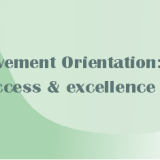Want to make a smooth college to career transition? Sharpen your vital competencies from now!
We have heard often enough how competitive today’s occupational world is, and how tough it is to survive and thrive in this competition. True enough! Knowing this , is there something we can do right from our college days to get an edge over the others? Is there something specific that employers look for in their employees? Is there a set of competencies that can be useful to us regardless of which profession we opt for, and can these competencies be mastered?
Indeed there are certain career competencies that are extremely crucial for success. Competencies essentially refer to a collection of characteristics (i.e. skills, knowledge, self- concept, traits and motives), that enables us to be successful in our interactions with others at work, school, home, and in our community at large. They refer to knowledge, skills, and personal attributes required for outstanding performance in a job, role, or specific business. Career competencies, in specific, refer to those characteristics that employers seek in prospective employees. Some of the most crucial career competencies include:
- Leadership
- Communication Skills
- Coping with change
- Team Work
- Professional/Technical Expertise
- Information Technology
- Motivation
- Time Management
- Interpersonal Relations
- Stress Tolerance
- Adaptability
- Interpersonal Skills
While students are busy acquiring their degrees and getting mastery of their respective subject areas, they never pay attention to these other competencies that are so crucial in the work place. By focusing on them right from college days, knowing to what extent they possess these skills, knowing what areas they need to work on and develop, they can systematically start working on developing those that they are weak in. by doing this, they can put themselves ahead of the competition, and enhance their job prospects.
How can one develop career competencies?
There are many ways to develop career competencies right from student days. The first step is to recognize the need for doing so. Having done this, you can take up some of the following activities to build up their competencies:
- Participate in group discussions with friends: Peers can learn a lot from each other. A few friends can get together and decide to work together at enhancing competencies. You can participate in discussions and debates on current issues. The way each individual participates in a group discussion is very indicative of his existing set of competencies. For instance, someone who has leadership qualities will usually take charge of the way the discussion proceeds and the direction it takes. Someone who has excellent communication skills can put forth his or her views in a very persuasive manner. The one with strong interpersonal
skills will try and keep tempers cool and resolve any arguments or disagreements. - Become a member of student clubs/organizations: The various youth clubs or organizations provide an excellent opportunity for youngsters to explore their strengths and weaknesses. Many times, the clubs also organize workshops or training programs on topics like personality development, time management, self-discovery and self-growth. Such workshops can be the stepping-stones to further introspection and self-assessment.
- Competency mapping or skills assessment: One of the best ways to know more about the various competencies and where one stands on them is to get a comprehensive psychometric assessment done. Such assessments are designed by experienced psychologists who have extensively studied human behaviour. There are many kinds of psychometric assessments available in the market, paper-pencil versions as well as online versions. Depending on what the test measures, you will be able to get a pretty good peek within yourself – your personality traits, your skill areas, your aptitudes, and so on.
- Summer jobs: Working part time in the vacations or for some hours during the term would give you invaluable work experience, which can go a long way in your eventual professional success.
It not only builds confidence and prepares you for your next role, but also introduces you to the various skills needed on-the-job. - Vocational subjects: Whenever possible, opt for vocational subjects offered in schools and colleges. Such technical/vocational programs provide you with in-depth career preparation in specific career areas
- Volunteer work: This is something very few students ever consider. However, working for some time at some NGOs or other such organizations that cater to the less fortunate can help build emotional maturity and resilience.Thus, in today’ s times, it is vital for you to gain some mastery over the basic career competencies if you are to make a smooth college to career transition. Developing your career competencies will not only provide you with an entry into the profession of your choice, a ‘foot in the door’ of sorts; but will also enable you to progress and advance in your chosen profession. It will eventually lead to job satisfaction.
Ms. Samindara Hardikar-Sawant
Clinical Psychologist
Psychometrica | Disha





